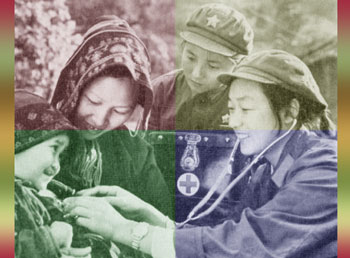
When I walked across the Hong Kong border bridge at the Sham Chun River crossing on March 10, 1972, and boarded the shiny Chinese steam engine for Canton, I pinched myself. I was part of a Committee of Concerned Asian Scholars (CCAS) delegation, and we were making history. We were one of the first American groups to visit China after the freeze in U.S.-China relations following the Chinese Communists’ rise to power. Nixon’s trip had occurred only a few weeks before, Ping-Pong Diplomacy only a year. The bridge crossing was a turning point in my life.
Listening now to the Chinese human rights activist Chen Guancheng, and reviewing the realpolitik of U.S.-China relations between Hillary Clinton and her Chinese counterparts, our innocence is hard to understand. But those were different times. Chen was barely six months old, the Cultural Revolution was still underway, and the Vietnam War was in full swing.
CCAS was a national group of young faculty and graduate students in Asian studies, formed in 1968. It joined with other advocates and scholars to oppose the Vietnam War and U.S. foreign policy in Asia. Our CCAS delegation had studied Chinese language, history, and politics; none of us had been able to travel to China because of the travel ban. We wanted to see the country firsthand, and teach America about what we saw. We wanted to be part of a new era in relations. We were ready to be impressed.
I was, too. Anti-war activity was escalating at that time. In Los Angeles, where I had lived the year before, my friends said, “Join us on the quad,” but I had watched the campus demonstrations on TV, after U.S. planes bombed Cambodia, and had not marched. I had also signed petitions and letters with other UCLA faculty to support Angela Davis, my husband’s fellow philosophy faculty colleague and popular professor targeted by the University of California Regents for her membership in the American Communist Party.
I had marched in the 1960s for civil rights, but then traveled to Taiwan to teach English and learn Mandarin Chinese. I had returned to graduate school in Chinese studies and saw myself still as a student, rather than an activist. But now in Ann Arbor, Michigan, with a freshly-minted master’s, I joined the newly-formed CCAS. The local chapter met weekly, wrote articles, and spoke about the bias inherent in American scholarship toward China and non-Western societies. “A political, usually unspoken, perspective underlies most scholarship,” we argued around the table that winter. “Young and established scholars must make their perspectives more explicit.” We raised our voices at national social science conferences too.

